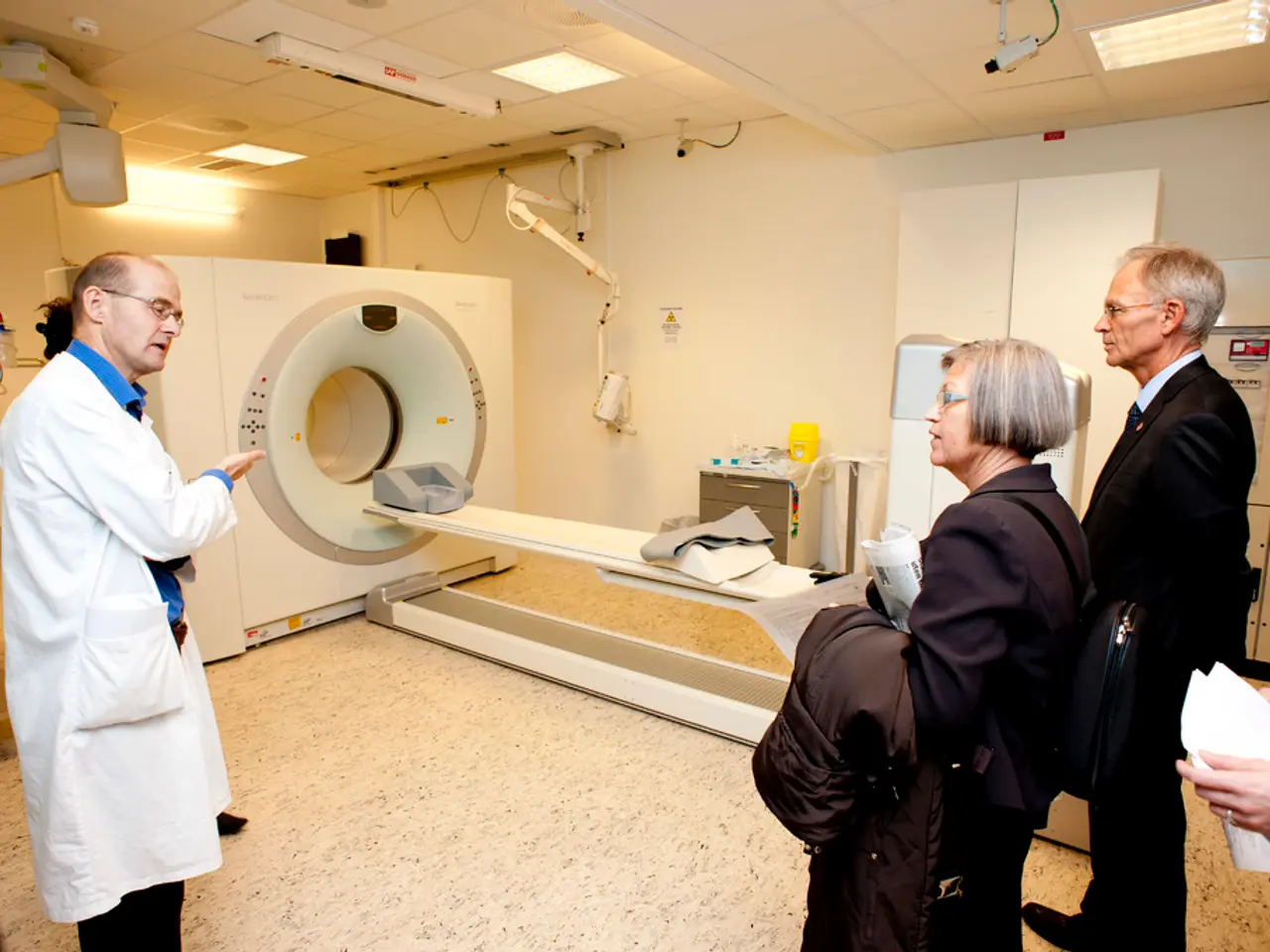Key Insights from ACC 2025 Event
In a significant development for cardiac patients, Medtronic's Evolut Transcatheter Aortic Valve Replacement (TAVR) system has demonstrated durable long-term outcomes that are statistically noninferior to surgically implanted aortic valves (SAVR), according to data from the Evolut Low Risk Trial.
The trial, which spanned over five years, showed that the TAVR system delivers strong valve performance and maintains clinical outcomes comparable to SAVR, including survival and disabling stroke rates. The TAVR system demonstrated noninferiority to SAVR for the composite endpoint of death or disabling stroke at one year, and this durability and safety profile remained stable through five years.
This finding supports TAVR as a viable option in lower-risk populations as well as high-risk surgical candidates. Although some trials report an increased risk of stroke and vascular complications with TAVR compared to surgery, the overall balance between benefits and risks leads to improved health outcomes for patients receiving the transcatheter valve.
In comparison to other contemporary TAVR valves, such as the Myval platform, Evolut shows comparable durability metrics, indicating sustained hemodynamic performance and low rates of significant valve deterioration or patient-prosthesis mismatch.
The American College of Cardiology's annual conference, held in Chicago and concluding on Monday, provided a platform for discussions on these advancements. The Boston Scientific's Sentinel cerebral embolic protection device, however, failed to reduce the risk of stroke within 72 hours of transcatheter aortic valve implantation in a large U.K. study.
Boston Scientific confirmed a "reassuring safety profile" for their TAVI device, with no statistical differences in all-cause mortality or access site-related complications. In the Medtronic study, all-cause mortality or disabling stroke occurred in 15.5% of TAVR patients and 16.4% in the surgical group.
Abbott's TriClip device, on the other hand, reduced hospitalizations for recurrent heart failure in patients with severe tricuspid regurgitation by 28% at two years. The BHF PROTECT-TAVI study found no difference between patient groups that underwent the valve procedure with or without the embolic protection device.
As the number of Transcatheter Aortic Valve Replacements (TAVR) procedures continues to grow, with more than 100,000 performed in the U.S. in 2023, surpassing the less than 60,000 surgical aortic valve replacements, the need for reliable and effective devices becomes increasingly important.
A meta-analysis combining data from the PROTECTED TAVR and BHF PROTECT-TAVI trials is scheduled to be presented at EuroPCR in May, which may help identify patient sub-groups that might benefit from the use of the embolic protection device. J.P. Morgan analyst Robbie Marcus noted that the difference between Evolut and surgery was not statistically significant, similar to Edwards Lifesciences' five-year TAVR data in 2023.
In conclusion, the Evolut TAVR system provides long-term outcomes that are statistically noninferior to surgical valve replacement, with durable valve performance, favorable safety profiles, and comparable mortality and stroke rates extending through at least five years post-implantation in appropriately selected patient populations.
- The Medtronic's Evolut TAVR system, in its five-year trial, demonstrated a safety profile comparable to surgically implanted aortic valves (SAVR), which is a significant finding for cardiac patients.
- The TAVR system's durability and safety profile remained stable, with noninferiority to SAVR for the composite endpoint of death or disabling stroke at one year.
- The FDA may take these long-term outcomes into account when considering the safety and efficacy of the TAVR system in lower-risk populations and high-risk surgical candidates.
- AI analytics can be used to predict patient-specific outcomes and determine the suitability of TAVR devices for individual patients, contributing to personalized medical-conditions management and improved health-and-wellness.
- In medtech research, advancements in cardiovascular health technology, such as the TAVR system, are essential for improving health outcomes for patients with various medical-conditions.
- The news of the Evolut TAVR's noninferior outcomes compared to SAVR is a testament to the progress in science and technology, specifically in the field of medical-devices and health-and-wellness.
- As the number of TAVR procedures increases, AI-driven analytics will play a crucial role in ensuring device safety and effectiveness, contributing to the overall growth and development of the health-and-wellness industry and cardiovascular health.




